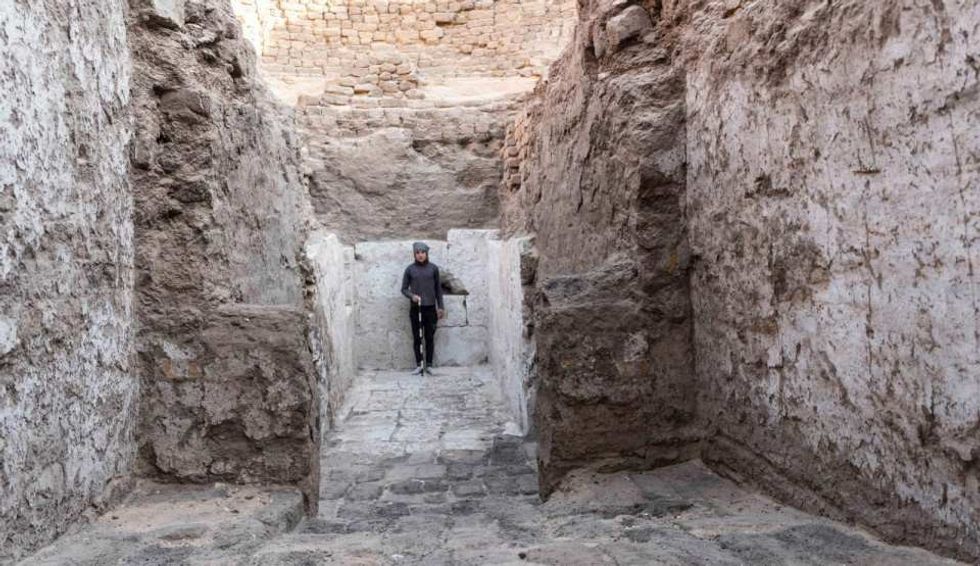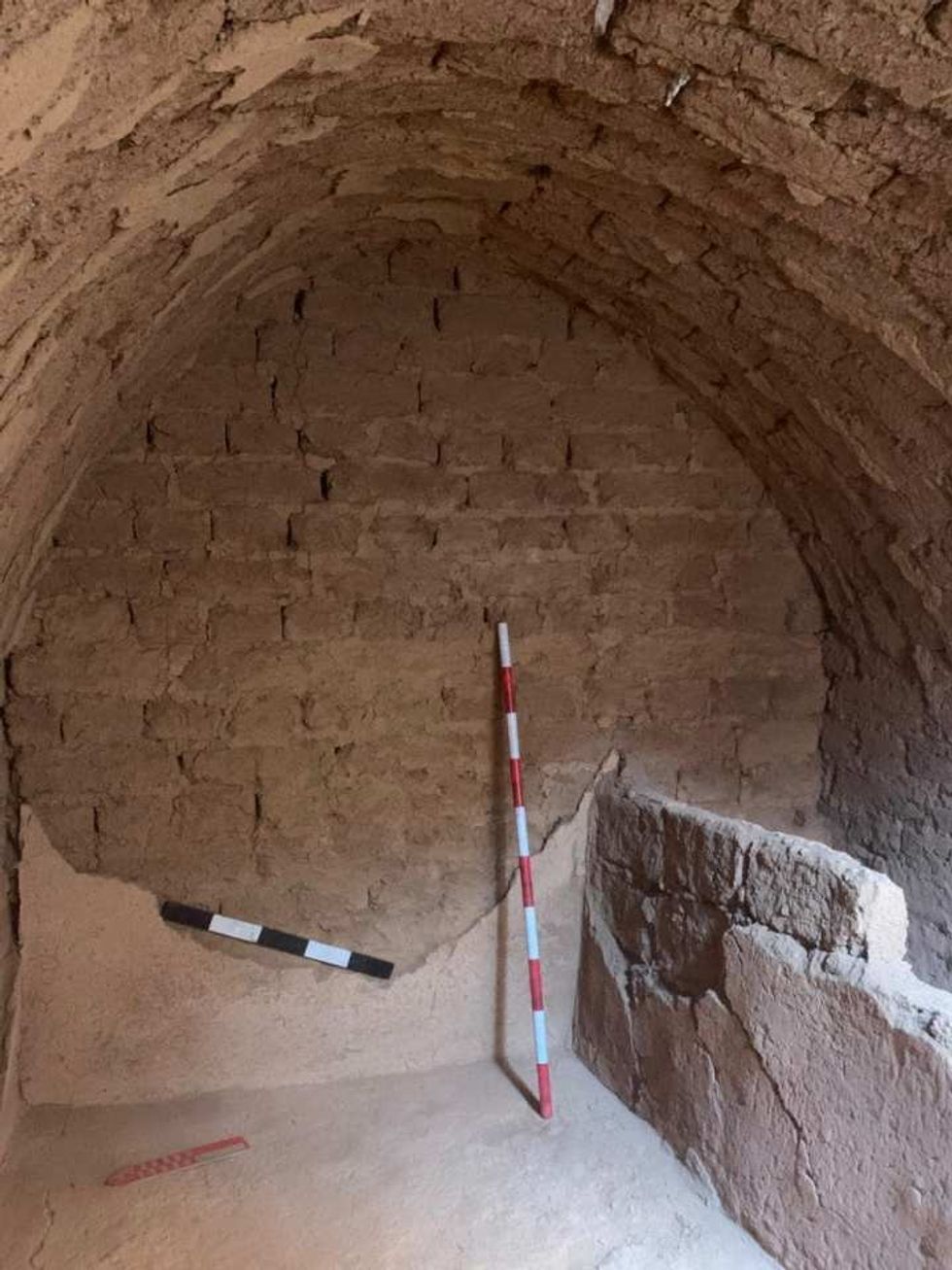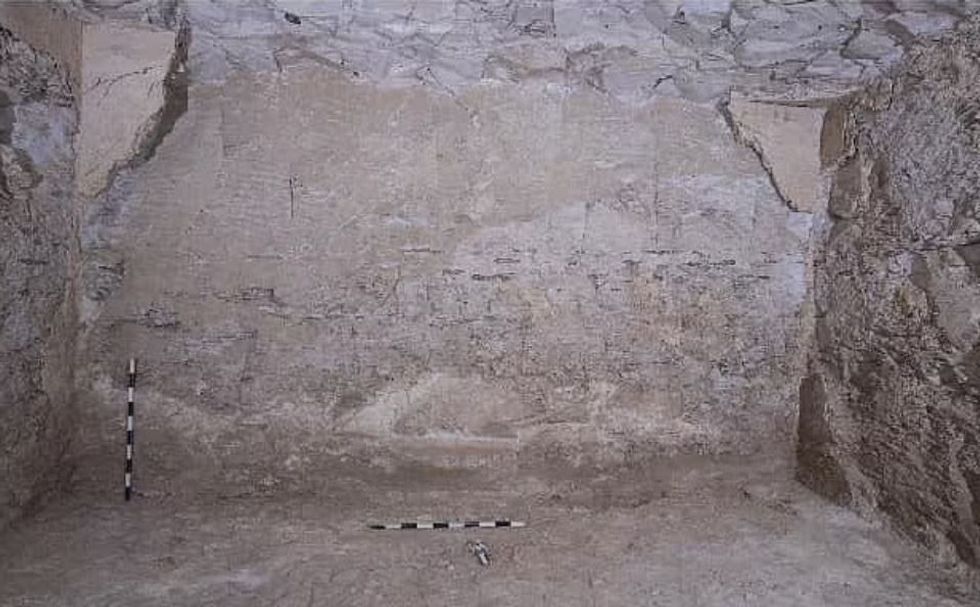Archaeologists have unearthed a massive tomb belonging to an ancient Egyptian pharaoh in one of the oldest cities in the world.
The long-lost burial site was discovered nearly 23 feet underground at the Mount Anubis necropolis in Abydos, in central Egypt.
A joint Egyptian-American archaeological team made the remarkable find - which dates back more than 3,000 years.
The burial site features several rooms and impressive 16-foot vaults constructed from mud bricks.
A joint Egyptian-American archaeological team made the remarkable find
MINISTRY OF TOURISM AND ANTIQUITIES
Like many ancient tombs, this one has been looted and damaged by robbers over the centuries
MINISTRY OF TOURISM AND ANTIQUITIES
Experts believe the tomb belongs to a member of the Abydos dynasty, which ruled the region more than 3,000 years ago
MINISTRY OF TOURISM AND ANTIQUITIES
It comes just weeks after another major Egyptian discovery, which marked only the second royal tomb found since King Tutankhamun's over 100 years ago.
In February, archaeologists uncovered King Thutmose II's tomb near Luxor's ancient Valley of the Kings.
Thutmose II was the fourth Pharaoh of Egypt's 18th Dynasty, reigning from about 1493 BC to 1479 BC.
He died aged 30 and was married to Queen Hatshepsut, who later became a powerful female pharaoh.

 By GB News (World News) | Created at 2025-03-31 10:14:26 | Updated at 2025-04-02 02:02:04
1 day ago
By GB News (World News) | Created at 2025-03-31 10:14:26 | Updated at 2025-04-02 02:02:04
1 day ago











